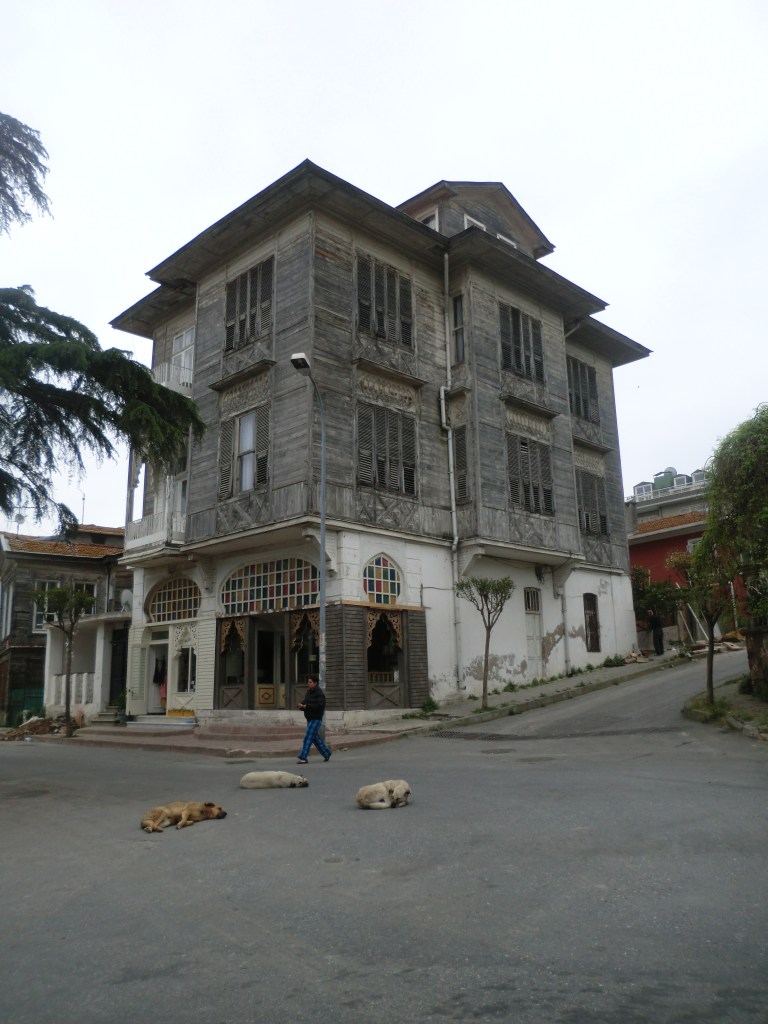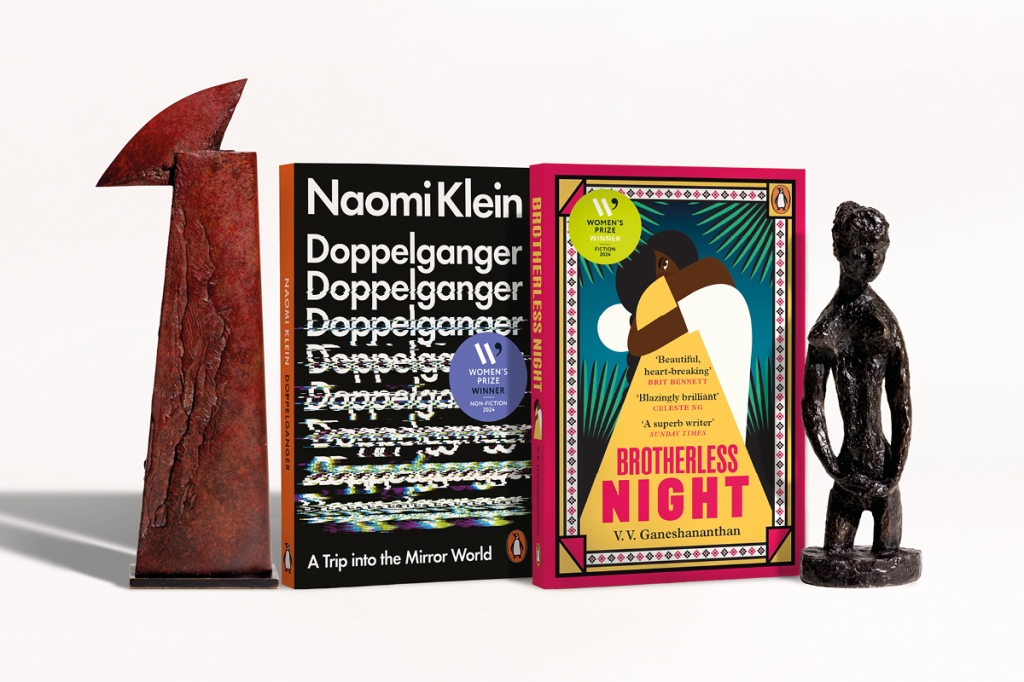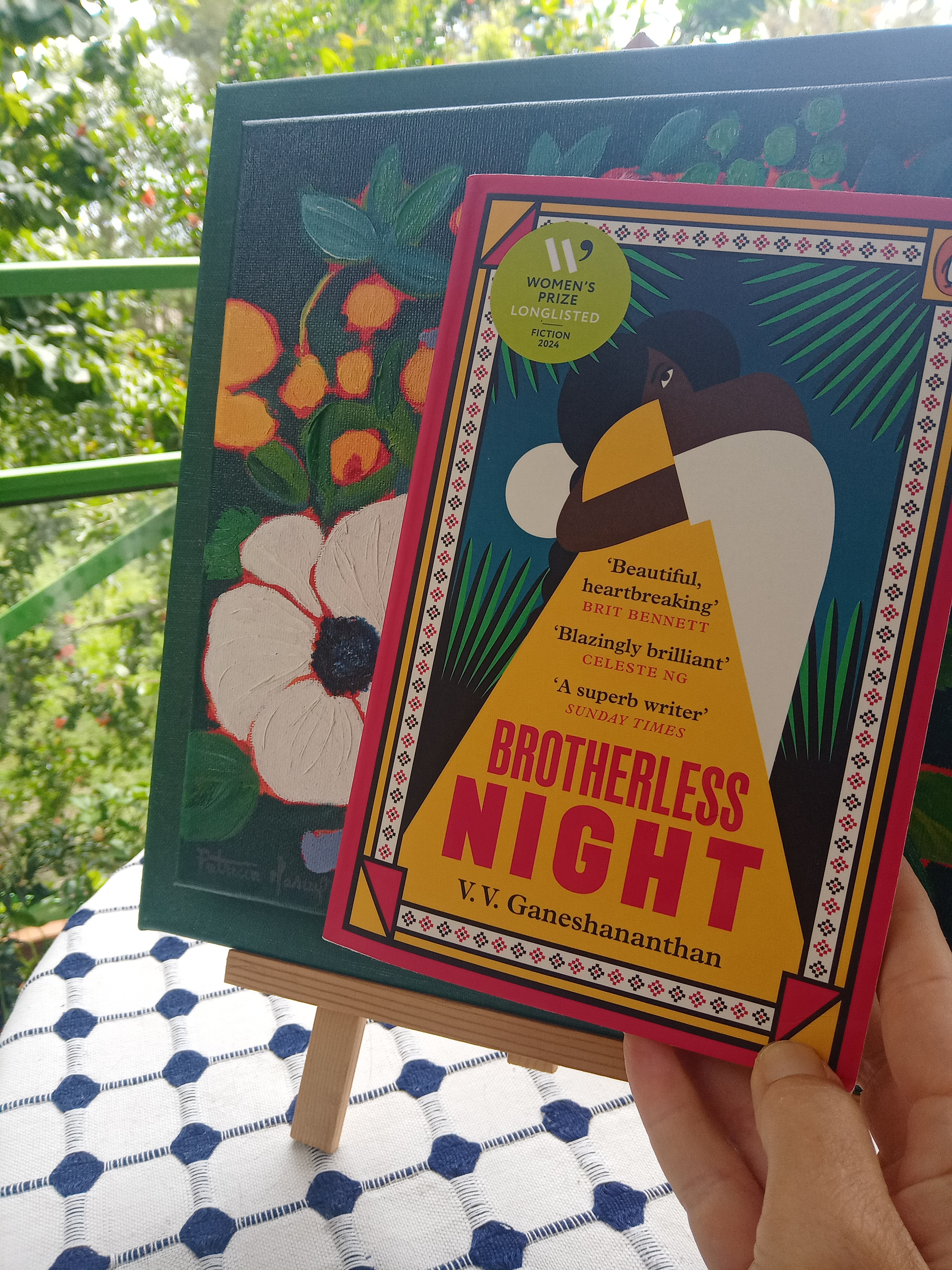I have wanted to read Hisham Matar’s memoir The Return: Fathers, Sons and the Land in Between for some time. That book is an account of the author’s search for his father who was kidnapped and disappeared in Libya when the author was 19-years-old. That book won him the Pulitzer Prize for biography or autobiography in 2017.
I read My Friends in the last couple of weeks and since finishing it, I learned that it has won the Orwell Foundation, 2024 Prize for Political Fiction from a shortlist of eight novels.
Alexandra Harris, who chaired the political fiction panel, said:
“My Friends is a work of grace, gentleness, beauty and intellect, offered in the face of blunt violence and tyranny. The shootings at the Libyan embassy in London in 1984 reverberate through the novel, defining the lives of young men who cannot risk returning to their families and their native country. Matar’s response to those gunshots is a richly sustained meditation on exile and friendship, love and distance, deepening with each page as layers of recollection and experience accrue.”
From Kings Cross Station to Shepherd’s Bush Green
My Friends is narrated between the time it takes our protagonist to farewell his friend Hosam Zowa at the Eurostar terminal at King’s Cross Station, to walk two hours plus, overland to the apartment he has lived in for the past 30 years at Shepherd’s Bush Green. Along the way he will pass points that elicit memories of the past from his youth to current middle age, bringing about a kind of reckoning, a healing.
By the end of the novel, he will have made a significant decision, long in the making.
These past years since 2011, since the Libyan Revolution and all that had followed it – the countless failures and missed opportunities, the kidnappings and assassinations, the civil war, entire neighbourhoods flattened, the rule of militias – changed Hosam. Evidence of this was in his posture but also his features: the soft tremble in the hands, perceptible each time he brought a cigarette to his mouth, the doubt around his eyes, the cautious climate in them, and a face like a landscape liable to bad weather.
The novel in a sense starts at the end, with the brief reunion and subsequent farewell of these two friends, as Hosam returns to London after spending the last five years in Libya and is en route to Paris and a new life in San Francisco.
This goodbye is the catalyst to Khaled’s long walk and reflection on the past thirty years of a compromised life that have lead to this moment.
One Fateful Decision
This was so good. Not just well written and an addictive page-turner, but an acute exploration of the effect on a young man of this one event. That event becomes a turning point in his life, keeping him away from his country and family. The longer that situation and his fear of it remains, the more it changes who he is and will become, preventing him from returning, even when he can.
Khaled is the son of a school teacher from Benghazi, Libya and when he is 18, he starts an English Literature degree at Edinburgh university on a government scholarship (having refused to find an influential relation to help the application along).
His family are proud, but his father is also cautious and has one pertinent but emphatic piece of advice for his son.
Bidding me farewell at the airport, my father held me not in his usual easy embrace but in one more constricted.
‘Don’t be lured in,’ he said, the words emanating from his very core.
‘I won’t,’ I said, assuming he meant the usual temptations that might lure a teenager.
He held my hand tightly, squeezing it harder than he had ever done before. The force frightened me. It made it seem as though I were in danger of falling. The pupils of his eyes turned small and dark and slowly, in a barely audible tone, he said,‘Don’t. Be. Lured. In.’
A Perception of Freedom
Despite the warning, Khaled gives in easily to pressure from his friend, fellow student Mustafa, to go on a quick trip to London to attend a demonstration against the regime of Gaddafi, outside the Libyan embassy.
When government officials fire from the windows at protestors, the two boys are wounded, their lives forever changed.
Exiled.
This aspect of the novel is based on a real incident that happened on 17 April 1984 resulting in the death of 25-year-old policewoman PC Yvonne Fletcher and the injury of 11 of the 70 demonstrators.
Living in Fear
Khaled is one of the worst wounded, and spends a week or so in hospital. From the moment he awakens, he lives in fear of being associated with what has happened, of being recognised. He lives in fear for his family, of repercussions and so begins a life of suppression.
He will never speak of what happened, he will never share exactly his whereabouts or what he is doing. He lives his life in a void ahead of the stories he tells. His family think he continues to study in Edinburgh. Every conversation he has, he speaks as though someone is listening. Because they are.
The Student, The Professor, The Writer
Thanks to a connection made with Professor Walbrook who had shown an interest in him, he will eventually resume his education in London and become a teacher.
‘Tell me about your life back in Libya. I’m afraid I know very little about your country.’
‘I grew up in the same Ottoman house where I was born, in Benghazi, right in the heart of the old downtown, very close to the seafront. The house belonged to my paternal grandfather and to his father before him. Each, including my father, was born there.
In London, he will lead a low profile existence and relationships are not easy to navigate due to how much of himself he becomes adept at holding back. His friendship with Mustafa is important because of their shared history and the rupture that skewered their life trajectory. For five months after the shooting he lost touch with him, then they re-connect, Mustafa carrying the guilt of the one who influenced the other.
What I wish I could have told him then is that at that moment I believed no one in the entire world knew me better than he did. That with him I did not have to pretend. I did not have to shield myself from his concern or bewilderment. I did not have to translate. And violence demands translation. I will never have the words to explain what it is like to be shot, to lose the ability to return home or to give up on everything I expected my life to be, or why it felt as though I had died that day in St Jame’s Square and, through some grotesque accident, been reborn into the hapless shoes of an eighteen-year-old castaway, stranded in a foreign city where he knew no one and could be of little use to himself, that all he could just abut manage was to march through each day, from beginning to end, and then do it again. I did not know how to say things then, I still do not, and the inarticulacy filled my mouth. This, I now know, is what is meant by grief, a word that sounds like something stolen, picked out of your pocket when you least expect it.
A Short Story on BBC Radio
The friendship that develops with Hosam Zowa, one we are aware of from the opening pages, reappears over half way through the novel. The origins of this friendship trace back to three years before departing for Scotland.
Khaled and his family were at home listening to BBC Radio Arabic (an 85 year old broadcasting service terminated in 2023). A well known presenter interrupted the news broadcast to read a short story by a man named Hosam, a writer whose debut novel would become a salve to Khaled and Mustafa, after what happened to them in London.
It was certainly the point in time after which nothing was the same again, not for him and, although I did not know it then, not for me either.
Not long after that story was read over the airwaves, the presenter was assassinated. The writer would go into hiding.
We had met in 1995, when he was thirty-five and I was twenty-nine, and, even though we have known each other for twenty-one years, it surprised me when I heard him whisper, ‘My only true friend,’ speaking the words rapidly and with deep feeling, as though it were a reluctant admission, as if at that moment and against the common laws of discourse speech had preceded thought and he was, very much like I was, comprehending those words for the very first time, and, perhaps, also like I was, noticing the at once joyous and sorrowful wake they left behind, not only because they had arrived at the point of our farewell, but also because of how they made even more regrettable that illusive character of our friendship, one marked by great affection and loyalty but also absence and suspicion, by a powerful and natural connection and yet an unfathomable silence that had always seemed, even when we were side by side, not altogether bridgeable. I do not doubt that I have been equally responsible for this gap, but nonetheless, I continue to accuse him in the privacy of my thoughts, believing that a part of him had chosen to remain aloof. I could perceive his remoteness even in the most boisterous of times.
A Personal, Political Promenade
Over the course of his walk, the novel unfolds and Khaled reflects on how he has been in these various relationships, the safe spaces he has created for himself, a small inconsequential apartment, a girlfriend that makes no demands of him, a teaching role that he can disappear into and those two friendships that remind him who he is.
His friends however make a decision to leave and Khaled will hesitate, witnessing from afar what is happening in his home country, a place changed from that which he and his father and ancestors knew. A country in the full throes of a revolution that will play out in the public domain.
A brilliant accomplishment, navigating the alternate life of a young man in exile, witness to a unique period in history, and the things that help someone like him survive in a place that provides refuge while never quite belonging.
Highly Recommended.
Hisham Matar, Author
Hisham Matar was born in New York to Libyan parents, spent his childhood in Tripoli and Cairo and has lived most of his adult life in London. His memoir The Return was the recipient of the 2017 Pulitzer Prize. He is also the author of the novels In The Country of Men, which was shortlisted for the Booker Prize, and Anatomy of a Disappearance.
Matar is a professor at Barnard College, Columbia University. He is a Fellow of the Royal Society of Literature and an Honorary Fellow of the Royal Academy of Arts. His work has been translated into over thirty languages.














